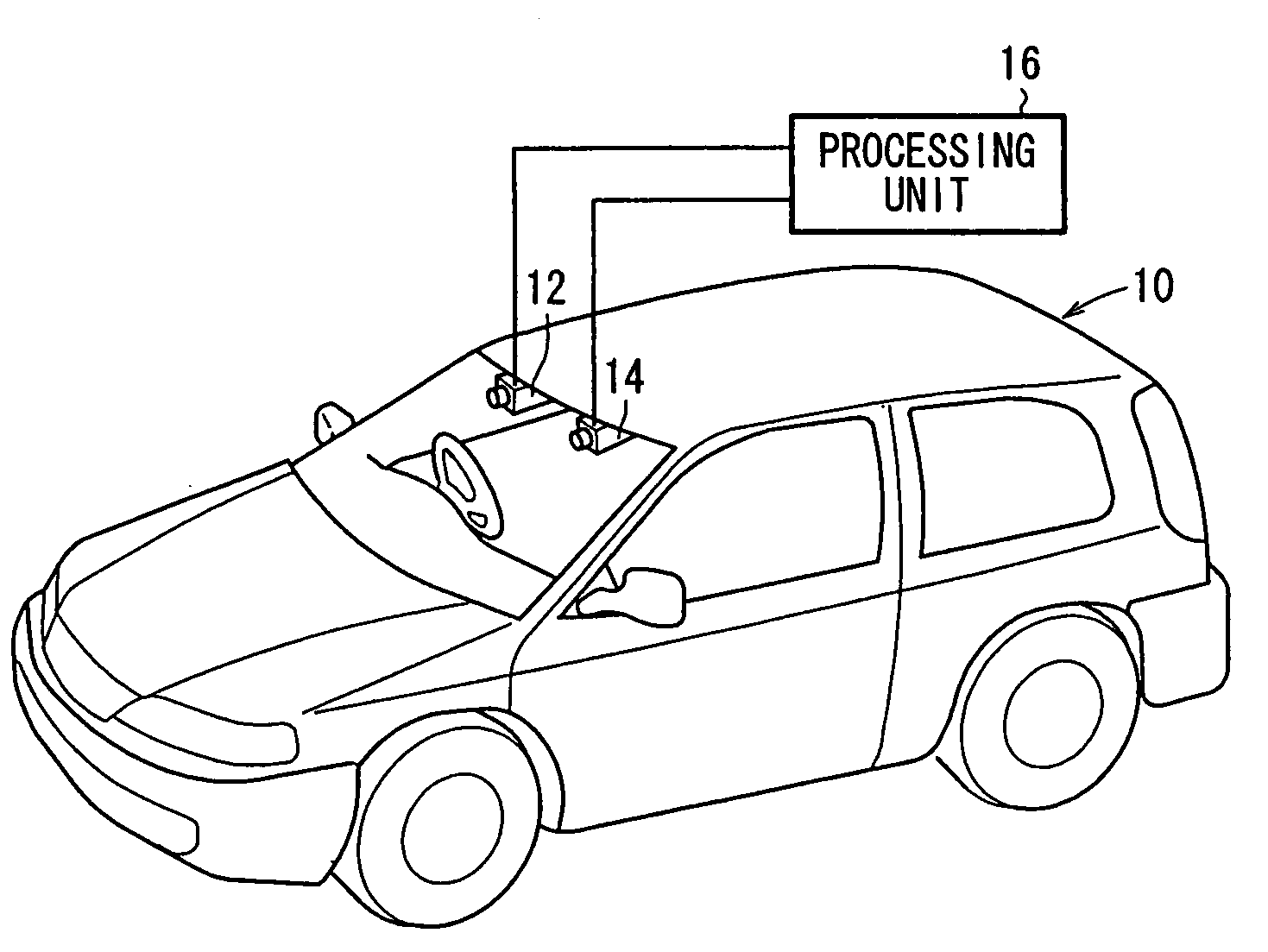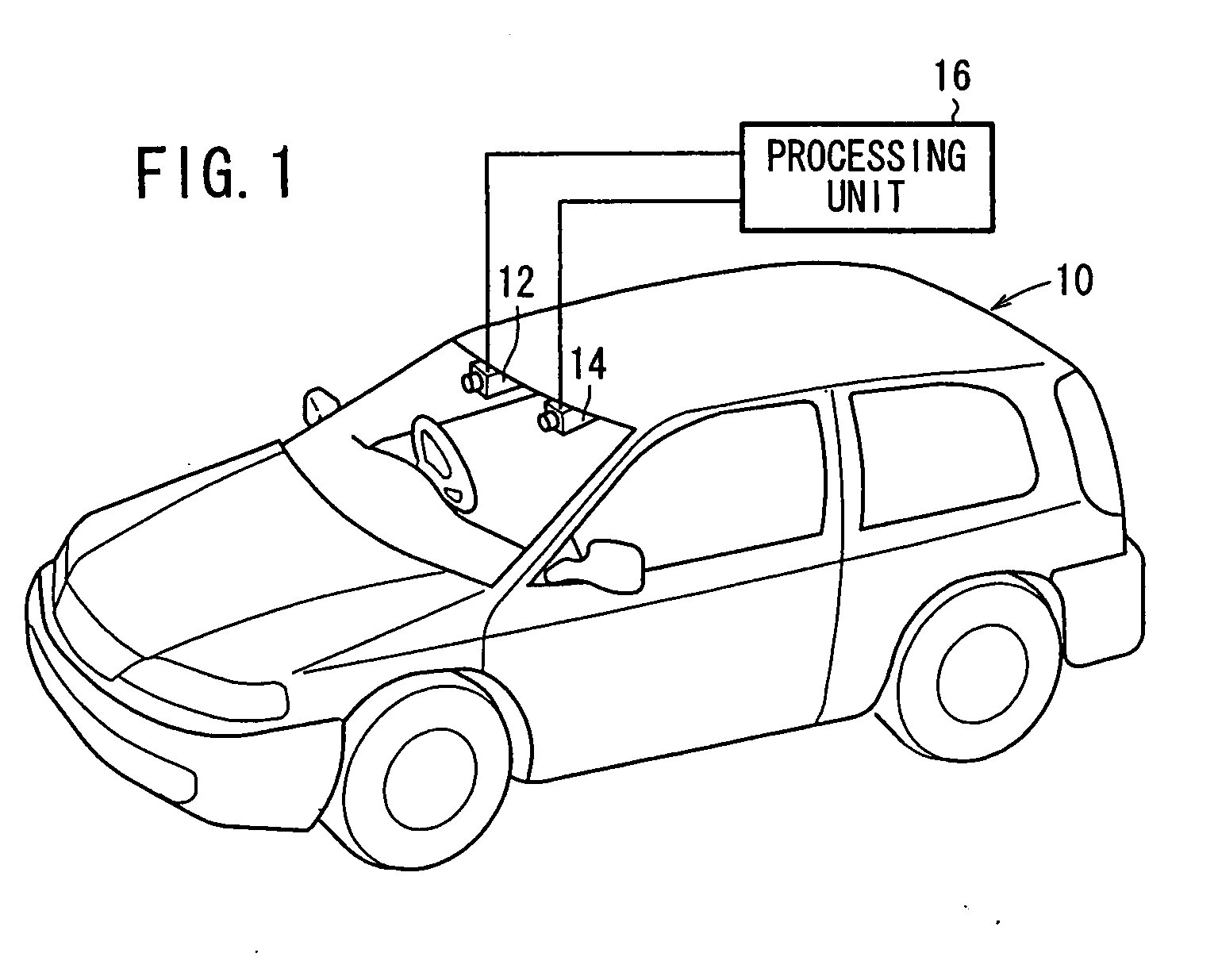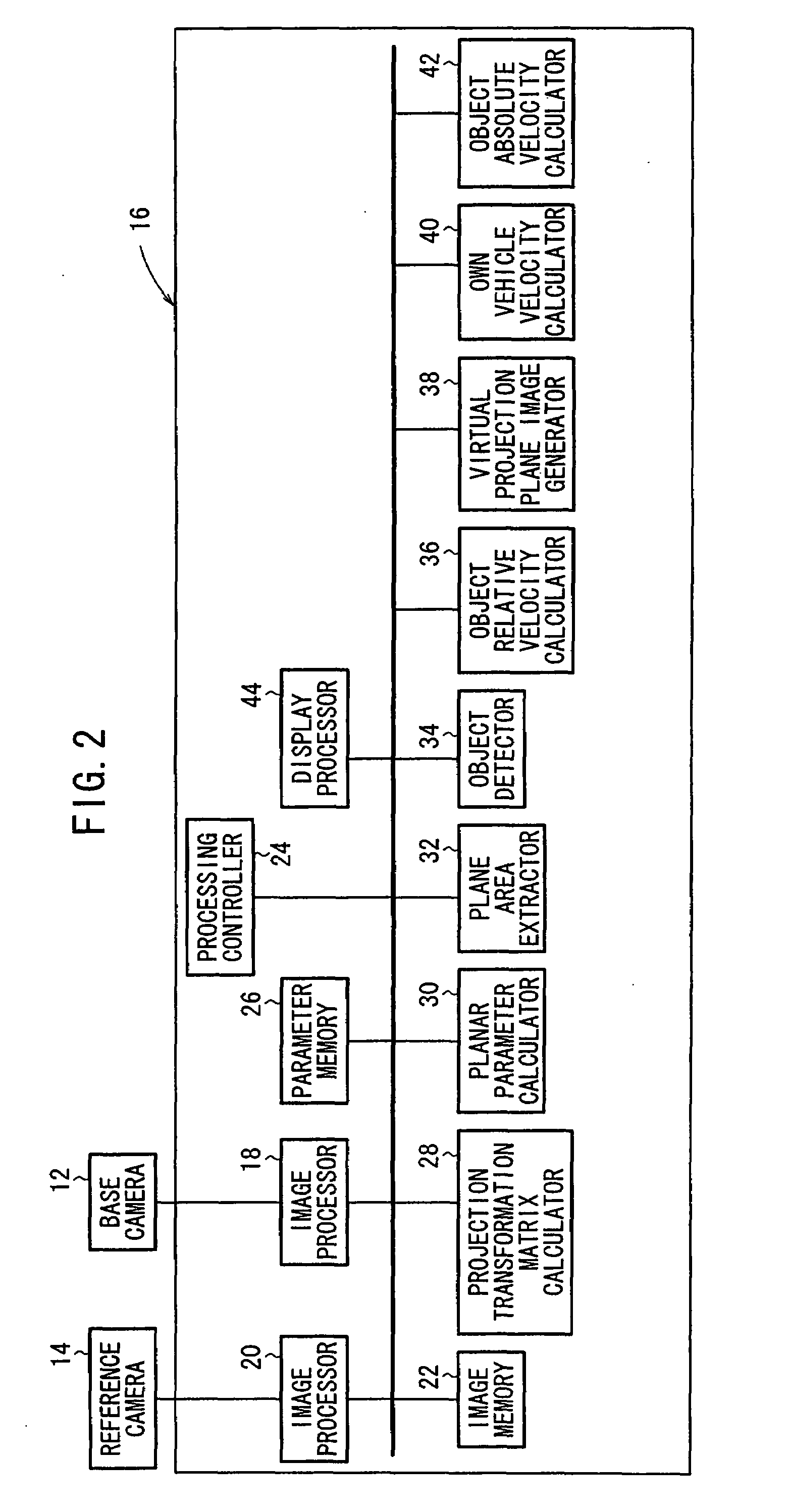Object Detector
a technology of object detection and object edges, applied in the field of object detection apparatus, can solve the problems of difficult to estimate the depth information of an object photographed, difficult inability to accurately associate an object position area, etc., to achieve accurate association of object position area, reduce the variation of measurement points, and improve the accuracy of stereo measurement
- Summary
- Abstract
- Description
- Claims
- Application Information
AI Technical Summary
Benefits of technology
Problems solved by technology
Method used
Image
Examples
Embodiment Construction
[0060]FIG. 1 shows a vehicle 10 according to an embodiment to which an object detecting apparatus according to the present invention is applied. The vehicle 10 has a windshield on which there are fixedly mounted a base camera 12 and a reference camera 14 in upper left and right regions thereof as a pair of image capturing means for capturing images including a road plane area where the vehicle 10 travels. The base camera 12 and the reference camera 14 are stereo cameras comprising CCD cameras or the like with a common image capturing area set therein. The base camera 12 and the reference camera 14 are connected to a processing unit 16 for processing captured images to detect the road plane area and an object which may possibly become an obstacle. In the description which follows, an image captured by the base camera 12 will be referred to as a base image, and an image captured by the reference camera 14 as a reference image.
[0061]FIG. 2 is a functional block diagram of the processin...
PUM
 Login to View More
Login to View More Abstract
Description
Claims
Application Information
 Login to View More
Login to View More - R&D
- Intellectual Property
- Life Sciences
- Materials
- Tech Scout
- Unparalleled Data Quality
- Higher Quality Content
- 60% Fewer Hallucinations
Browse by: Latest US Patents, China's latest patents, Technical Efficacy Thesaurus, Application Domain, Technology Topic, Popular Technical Reports.
© 2025 PatSnap. All rights reserved.Legal|Privacy policy|Modern Slavery Act Transparency Statement|Sitemap|About US| Contact US: help@patsnap.com



